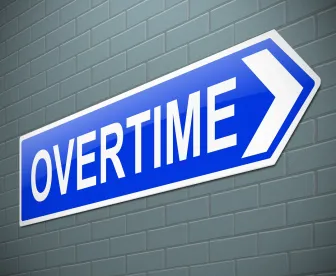The U.S. Department of Labor (DOL) on March 7, 2019, issued a new proposed rule raising the annual minimum salary requirements for the Fair Labor Standards Act (FLSA) overtime exemptions for executive, administrative, and professional employees. Under the new rule, the salary level for these “white collar” exemptions will increase from $23,660 per year ($455 per week) to $35,308 per year ($679 per week). The proposed rule will also raise the annual compensation requirement for an employee to be considered a “highly compensated employee” and exempt from overtime from the current $100,000 per year to $147,414 per year. The DOL did not, however, propose any changes to the duties test. In addition, the DOL did not propose automatic adjustments to the salary threshold, nor did it create differing salary levels based on region or size of employer.
These standards differ significantly from the salary standards proposed by the Obama Administration, which were more favorable to employees. But this new proposal will still significantly impact businesses, possibly resulting in the reclassification of many currently exempt employees as non-exempt.
There are options for businesses that employ individuals currently exempt from overtime requirements because they earn more than $23,660 per year ($455 per week) but less than $35,308 per year ($679 per week). If the employee’s earnings are closer to the proposed higher threshold, the employer may consider simply increasing the employee’s salary to be above $35,308 per year, so they remain exempt. This could be less expensive than reclassifying these employees as non-exempt and paying overtime. Alternatively, for those employees for whom a raise is not practical, employers may consider mitigating overtime costs by imposing and enforcing strict no-overtime policies or reducing employees’ hours to decrease the likelihood of overtime.
Meeting the salary threshold does not alone make an employee exempt. The employee must remain engaged in executive, administrative, or professional duties, or another exempt status.
The DOL anticipates issuing a final rule in January 2020, but employers should not wait until the rule is finalized to audit and review their employee classifications. In the meantime, employers should stand by before implementing changes, as the final rule could significantly differ from this initial proposal.




 />i
/>i

